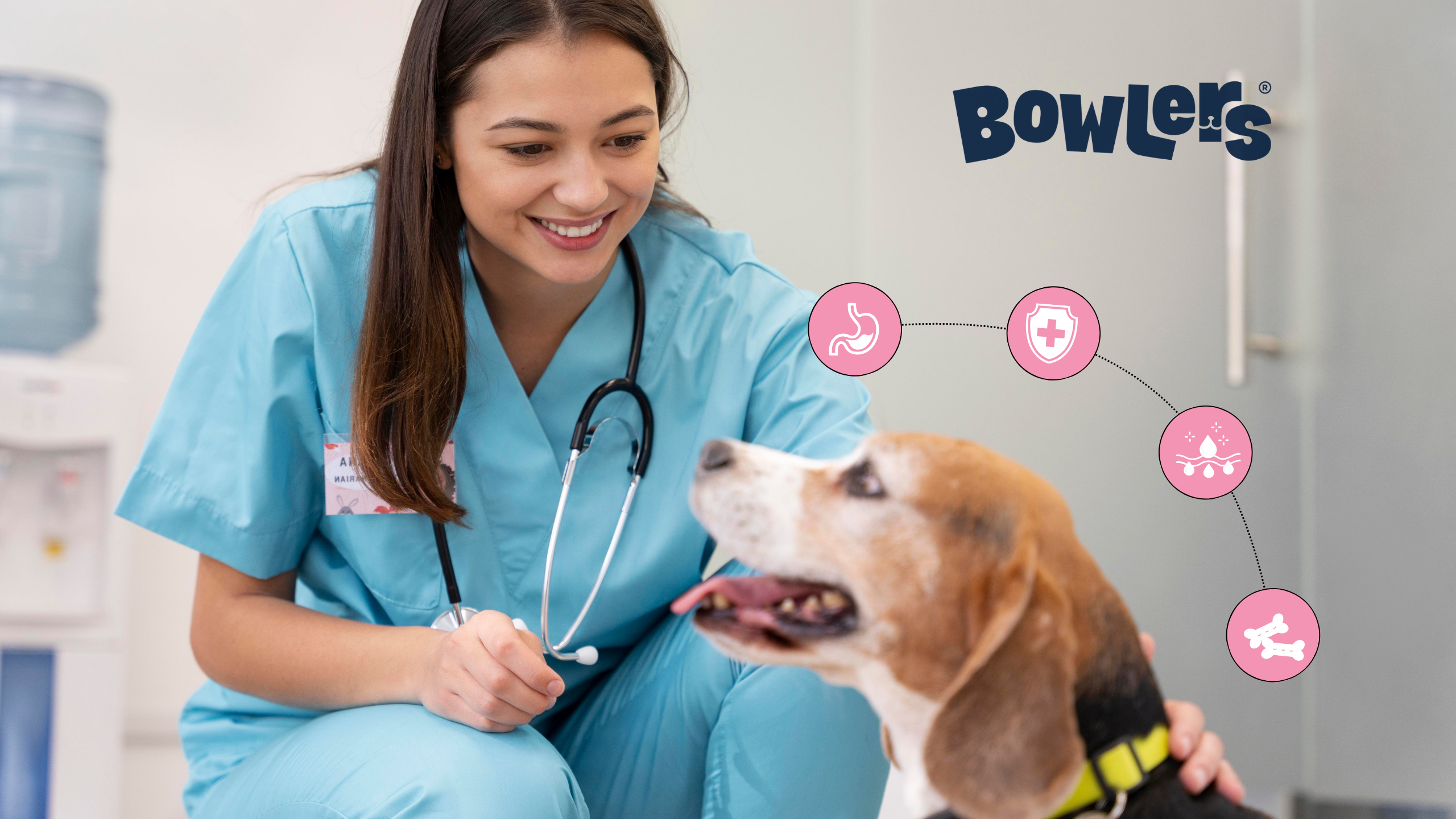How Often Should You Take Your Dog to the Vet? A Complete Guide

Table of contents
- Why Regular Vet Checkups Matter
- How Often Should You Take Your Dog to the Vet?
- What Happens During a Dog Wellness Exam
- Preventive Vet Visits vs Sick Visits
- How to Prepare for Vet Checkups
- What Happens if You Skip Vet Visits?
- Additional Preventive Measures During Vet Visits
- Building a Lifelong Vet Partnership
Keeping your dog healthy for life starts with good habits, and one of the most important routines is regular veterinary care. While many pet parents understand that a vet visit is necessary when their dog shows signs of illness, preventive vet visits are equally—if not more—critical. Consistent care helps detect problems early, maintain optimal health, and ensure that your dog’s immune system stays strong.
In this complete guide, we will explain how often you should schedule dog vet checkups, what happens during a dog wellness exam, and why both routine and annual visits are key to keeping your furry companion in great shape. Whether you are a first time dog parent or a seasoned caregiver, this guide will help you build a proactive relationship with your veterinarian and better understand vet care for dogs.
Why Regular Vet Checkups Matter
A healthy dog may not always show outward symptoms until a problem is already advanced. Regular vet visits ensure that issues like dental disease, parasites, or metabolic disorders are caught early before they affect your dog’s quality of life.
Key benefits of routine veterinary care include:
✔Early detection of disease or nutritional imbalances
✔Timely vaccinations and parasite control
✔Monitoring of weight, coat health, and behavior
✔Advice on diet, exercise, and lifestyle adjustments
Regular checkups are an investment in your dog’s long term well-being—not just a visit when your pet seems unwell.
How Often Should You Take Your Dog to the Vet?
Puppies: Every 3-4 Weeks Month Until Six Months
Puppies need frequent visits for vaccinations, deworming, and health monitoring. These visits also give you the chance to ask questions about vet care for dogs, socialization, and dog wellness exams. Puppies are at a higher risk for contagious diseases, so adhering to a vaccination schedule is essential.
Adults (1-7 Years): At Least Once a Year
For healthy adult dogs, a thorough annual vet visit for dogs is recommended. This exam helps track changes in weight, coat condition, and overall health. Your vet may recommend routine blood tests, dental evaluations, and preventive treatments like flea and tick control.
For dental specific care, check out: Dog Dental Care 101: Brushing, Chews, and Vet Visits.
Senior Dogs (7+ Years): Every 6 Months
As dogs age, their metabolism, immune response, and joint health change. More frequent visits allow your vet to monitor for arthritis, dental disease, kidney or liver issues, and age-related decline. Seniors benefit from targeted advice on diet and exercise adjustments to improve mobility and comfort.
Learn more about recognizing age related symptoms in: 8 Signs of a Healthy Dog (and Early Warnings of Trouble).
What Happens During a Dog Wellness Exam
A typical dog wellness exam includes:
✔ Physical assessment- checking coat, skin, eyes, ears, and joints
✔ Monitoring weight and body condition
✔ Heart and respiratory checks
✔ Discussion about diet, exercise, and behavior
✔ Vaccinations and parasite control recommendations
✔ Blood or urine tests if necessary
✔ Dental evaluation and care recommendations
These exams are more than a “checklist”-they are an opportunity to collaborate with your vet on preventive health measures.
Preventive Vet Visits vs Sick Visits
It’s easy to confuse regular checkups with emergency care, but preventive visits are about keeping your dog well before symptoms arise.
Preventive Vet Visits
✔ Scheduled regularly (usually annually or biannually)
✔ Focus on early detection of issues before symptoms appear
✔ Include vaccinations, dental checks, bloodwork, and parasite prevention
✔ Help reduce long-term healthcare costs and improve quality of life
Sick Visits
✔ Booked when new or sudden symptoms arise (e.g., vomiting, lethargy, coughing)
✔ Aim to diagnose the cause through exams and diagnostics
✔ May involve urgent treatment, medications, or follow-ups
✔ Crucial for addressing issues before they worsen
By scheduling preventive care, you can reduce the frequency of emergency vet visits and help your dog lead a healthier life.
How to Prepare for Vet Checkups
Preparing for a vet visit can ensure that the appointment is productive and stress free. Here is how to make the most of it:
For a complete approach to dental care, see: Dog Dental Care 101: Brushing, Chews, and Vet Visits.
What Happens if You Skip Vet Visits?
Neglecting routine care can lead to preventable health issues:
✔ Dental disease that progresses to infections
✔ Undiagnosed parasites affecting digestion and immune health
✔ Weight gain or obesity related complications
✔ Missed early signs of chronic diseases like diabetes
✔ Lack of vaccination leading to preventable diseases
Skipping vet visits may result in costly treatments later. More importantly, it can compromise your dog’s comfort and happiness.
Additional Preventive Measures During Vet Visits
In addition to physical exams, your vet may suggest complementary strategies that align with preventive care, such as:
✔ A customized exercise routine to support mobility and weight management
✔ Nutritional advice tailored to your dog’s age and lifestyle
✔ Parasite prevention treatments, including those covered in our article: Flea, Tick, and Worm Prevention: Protecting Your Dog Year Round
✔ Recommendations on mental stimulation and enrichment activities
✔ Guidance on recognizing early symptoms of disease and when to seek care
For more on keeping dogs active and mentally fit, explore: How Much Exercise Does Your Dog Really Need?.
Building a Lifelong Vet Partnership
The best preventive care happens when you and your veterinarian work together. Establishing trust early helps your dog feel comfortable during visits and allows your vet to monitor your dog’s health over time.
Steps to build this partnership:
✔ Visit the same clinic consistently to create familiarity
✔ Follow vaccination and exam schedules without skipping appointments
✔ Share concerns openly, no matter how small they seem
✔ Follow through with recommended tests or treatments
A collaborative approach ensures your dog’s health is always a priority.
Knowing how often to take your dog to the vet is essential for providing long term care. Regular dog vet checkups, routine preventive vet visits, and annual or semi annual dog wellness exams are the foundation of a healthy life. These visits not only help with disease prevention but also ensure that your dog’s diet, dental health, exercise, and behavior are in check.
At Bowlers, we encourage pet parents to view vet visits as an investment in their dog’s happiness, longevity, and well being. When paired with good nutrition and exercise, routine care empowers you to provide a life full of energy, comfort, and joy.


